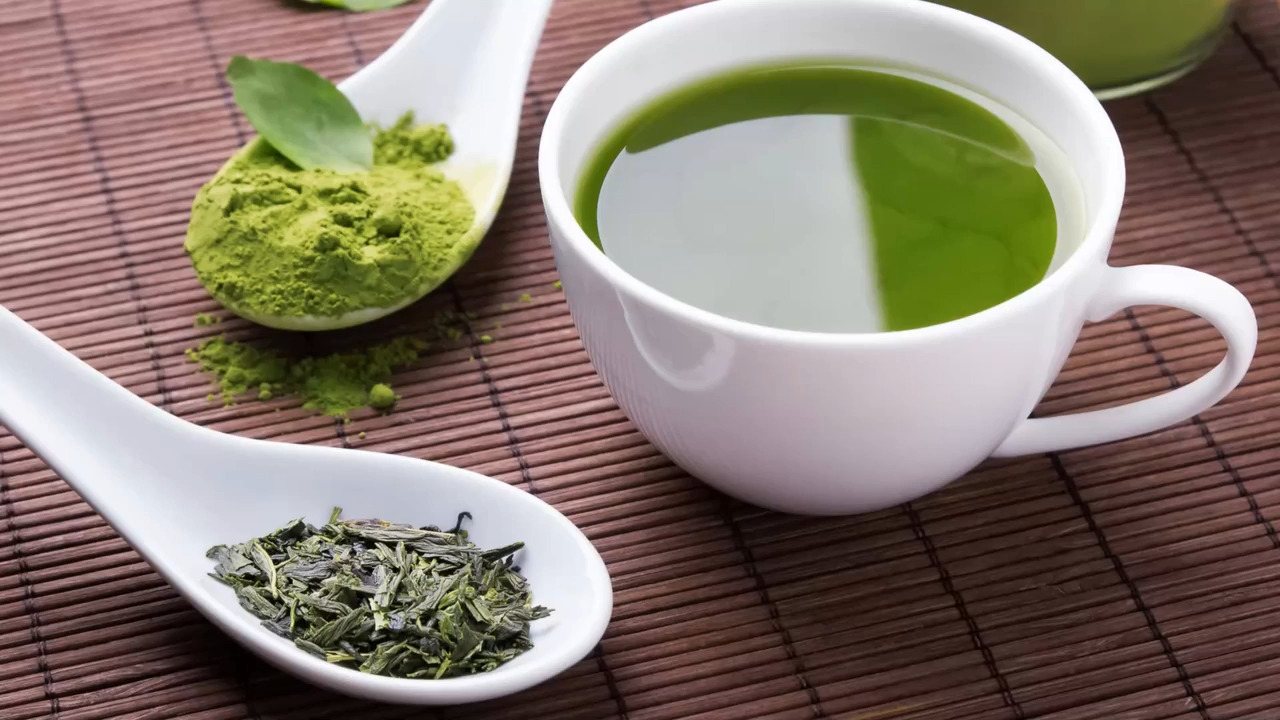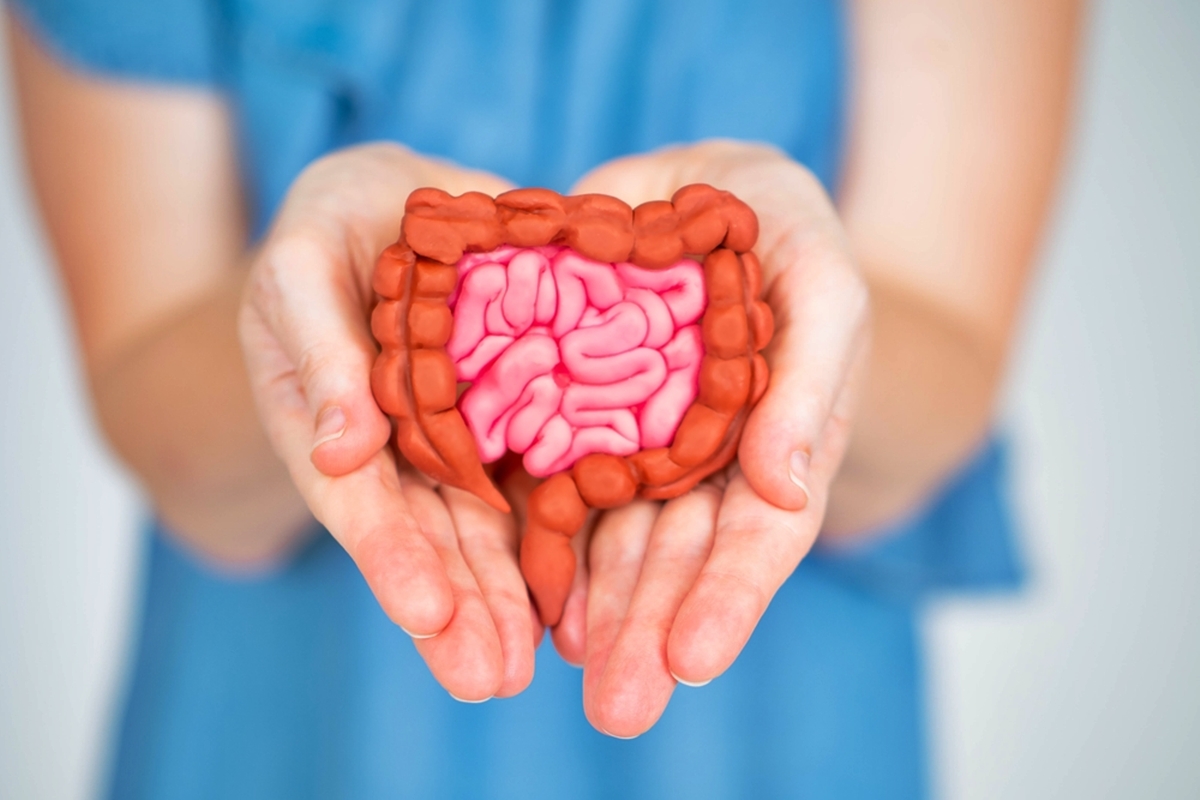

Featured
How To Heal Your Gut Health
Modified: January 2, 2024
Learn how to heal your gut health with our featured guide. Discover effective tips and strategies to improve your gut health and enhance overall well-being.
Introduction
Gut health has gained significant attention in recent years, and for good reason. A healthy gut is crucial for overall well-being, as it plays a vital role in digestion, nutrient absorption, and immune function. Unfortunately, many people suffer from an imbalanced gut, which can lead to a variety of health issues.
The gut, often referred to as the “second brain,” is home to trillions of bacteria that make up the gut microbiome. When the balance of good and bad bacteria in the gut is disrupted, it can result in an unhealthy gut environment. This imbalance can be caused by a number of factors, including poor diet, stress, lack of sleep, and environmental toxins.
Having an unhealthy gut can manifest through a range of signs and symptoms, including bloating, gas, constipation, diarrhea, food intolerances, skin problems, and even mood disorders. If left unaddressed, these issues can impact your quality of life and overall health.
The good news is that it’s possible to heal your gut and restore balance to your digestive system. By adopting certain lifestyle changes and incorporating specific foods and supplements, you can support the healing process and improve your gut health.
In this article, we will explore the importance of gut health, the signs and causes of an imbalanced gut, and the steps you can take to heal your gut and optimize your overall well-being.
Understanding Gut Health
Gut health refers to the state of our gastrointestinal system and the balance of bacteria, viruses, fungi, and other microorganisms that reside in our gut. The gut, also known as the digestive tract, is responsible for breaking down food, absorbing nutrients, and eliminating waste. It is a complex ecosystem, hosting trillions of microorganisms collectively known as the gut microbiome.
The gut microbiome consists of both beneficial and harmful bacteria. When the balance of these microorganisms becomes disrupted, it can result in an unhealthy gut. An imbalanced gut can lead to a weakened immune system, nutritional deficiencies, inflammation, and various health problems.
One of the key factors that influence gut health is the diversity and abundance of the gut microbiome. A diverse gut microbiome is associated with better digestive health, improved metabolism, enhanced immune function, and even better mental health. On the other hand, a lack of diversity in gut bacteria can contribute to digestive issues, allergies, autoimmune conditions, and mood disorders.
The gut-brain axis is another important aspect of gut health. There is a strong connection between the gut and the brain, with communication occurring through a complex network of nerves, hormones, and chemical signals. This bidirectional communication plays a significant role in regulating mood, cognition, and even behavior. Disruptions in the gut-brain axis can lead to mental health disorders such as anxiety and depression.
Besides digestion and mental health, the gut also plays a crucial role in our immune system. Approximately 70% of our immune system is located in the gut-associated lymphoid tissue (GALT). The gut microbiome helps to train and support our immune system, helping defend against harmful pathogens and maintaining optimal immune function.
Understanding the intricacies of gut health is essential for taking steps towards improving and maintaining a healthy gut. By nurturing a diverse gut microbiome, promoting a strong gut-brain connection, and supporting our immune system, we can optimize our digestion, overall well-being, and quality of life.
Signs and Symptoms of an Unhealthy Gut
An unhealthy gut can manifest through a range of signs and symptoms, affecting not only your digestive system but also other aspects of your health. Recognizing these signs is crucial for identifying and addressing gut health issues. Here are some common indicators of an imbalanced gut:
- Digestive Issues: Bloating, gas, abdominal pain, constipation, diarrhea, and irregular bowel movements are common signs of an unhealthy gut. These symptoms may be chronic or intermittent, depending on the individual.
- Food Intolerances: Developing new food intolerances or experiencing increased sensitivity to certain foods can be indicative of an imbalanced gut. This sensitivity may manifest as digestive discomfort, skin reactions, or other allergic-like symptoms.
- Weight Fluctuations: Sudden weight loss or weight gain without any apparent cause can be a sign of an unhealthy gut. Gut imbalances can affect metabolism and nutrient absorption, leading to changes in body weight.
- Mood Disorders: The gut-brain connection is strong, and disruptions in gut health can impact your mental well-being. Anxiety, depression, mood swings, and irritability are commonly linked to an imbalanced gut.
- Skin Problems: Skin conditions like acne, eczema, and psoriasis can be related to gut health. An unhealthy gut can contribute to inflammation and systemic inflammation often manifests as skin issues.
- Weakened Immune System: Frequent infections, slow wound healing, and susceptibility to illness can be signs of a compromised immune system. The gut microbiome plays a crucial role in supporting immune function, so an imbalanced gut may weaken your immune response.
- Autoimmune Conditions: Certain autoimmune conditions, such as rheumatoid arthritis, inflammatory bowel disease, and Hashimoto’s thyroiditis, are associated with an imbalanced gut. The immune system may mistakenly attack healthy cells due to dysregulation caused by gut dysfunction.
It’s important to note that these signs and symptoms can vary from person to person. If you’re experiencing any of these indicators, it may be worth considering the health of your gut and taking steps to restore balance and improve your overall well-being.
Causes of Imbalanced Gut Health
Several factors can contribute to imbalanced gut health. Understanding these causes can help you identify potential triggers and take proactive steps towards improving your gut health. Here are some common causes of gut imbalances:
- Poor Diet: One of the biggest contributors to an imbalanced gut is a poor diet. Consuming a diet high in processed foods, refined sugars, unhealthy fats, and low in fiber can disrupt the gut microbiome and lead to inflammation.
- Antibiotics and Medications: Antibiotics are designed to kill bacteria, but unfortunately, they can’t distinguish between good and bad bacteria in the gut. Overuse or prolonged use of antibiotics can disrupt the balance of gut bacteria and lead to gut imbalances.
- Chronic Stress: Stress and anxiety can wreak havoc on your gut health. The gut and the brain are closely connected, and stress can disrupt the gut-brain axis, leading to imbalances in gut bacteria and digestive issues.
- Lack of Sleep: Poor sleep quality or inadequate sleep has been associated with imbalances in gut bacteria. Sleep deprivation can impair gut function and weaken the integrity of the intestinal lining.
- Environmental Factors: Exposure to environmental toxins, such as pesticides, pollutants, and heavy metals, can negatively impact gut health. These toxins can disrupt the gut microbiome and compromise the integrity of the intestinal barrier.
- Chronic Illness and Infections: Certain chronic illnesses like autoimmune conditions, gastrointestinal infections, and inflammatory diseases can lead to imbalances in gut health. Chronic inflammation and immune dysfunction can disrupt the delicate balance of the gut microbiome.
- Excessive Alcohol Consumption: Alcohol can irritate the gut lining and disrupt the gut microbiome. Excessive alcohol consumption can lead to imbalances in gut bacteria, inflammation, and damage the intestinal barrier.
It’s important to note that individuals may have different sensitivities and responses to these triggers. Identifying and addressing the specific causes of your imbalanced gut health is key to implementing targeted strategies for healing your gut.
The Importance of Healing Your Gut
Healing your gut is not just about resolving digestive issues—it is about improving your overall well-being and optimizing your health. The health of your gut impacts numerous aspects of your body, from your immune system to your mental health. Here are some key reasons why healing your gut is essential:
- Improved Digestion and Nutrient Absorption: A healthy gut plays a crucial role in breaking down food, absorbing nutrients, and eliminating waste efficiently. By healing your gut, you can enhance digestion and optimize nutrient absorption, which can lead to better overall health and vitality.
- Enhanced Immune Function: The majority of your immune system is located in your gut, and the gut microbiome plays a critical role in supporting immune function. By healing your gut, you can strengthen your immune system, making it more robust and resilient against pathogens and disease.
- Better Mental Health and Mood: The gut-brain connection is bidirectional, with the gut impacting the brain and vice versa. By healing your gut, you can improve the communication between your gut and brain, which may result in reduced anxiety, depression, and improved mental well-being.
- Reduction of Inflammation: An imbalanced gut can lead to chronic inflammation throughout the body. By healing your gut, you can reduce inflammation, which is associated with a wide range of health issues, including autoimmune diseases, allergies, and chronic pain.
- Optimized Weight Management: Healing your gut can contribute to a healthier weight. A balanced gut microbiome positively influences metabolism, fat storage, and appetite regulation. By improving gut health, you can support your weight management goals.
- Increased Energy and Vitality: When your gut is functioning optimally, you can experience greater energy levels and overall vitality. Healing your gut allows your body to efficiently convert food into energy and eliminates the burden of nutrient deficiencies and digestive discomfort.
- Improved Skin Health: An imbalanced gut can contribute to skin issues like acne, eczema, and psoriasis. By healing your gut, you can address the root cause of these skin conditions and achieve a clearer, healthier complexion.
By prioritizing gut health and taking steps to heal your gut, you can transform your well-being on multiple levels. It allows you to optimize digestion, support your immune system, enhance mental health, reduce inflammation, and boost overall vitality. Nurturing a healthy gut is an investment in your long-term health and quality of life.
Steps to Heal Your Gut Health
Restoring balance to your gut requires a multi-faceted approach that focuses on nourishing the gut microbiome, reducing inflammation, and promoting overall digestive wellness. Here are some steps you can take to heal your gut:
- Identify and Remove Trigger Foods: Start by identifying foods that may be causing gut irritation or inflammation. Common culprits include processed foods, refined sugars, artificial additives, gluten, and dairy. Experiment with an elimination diet or work with a healthcare professional to pinpoint trigger foods and eliminate them from your diet.
- Incorporate Gut-Healing Foods: Focus on consuming whole, nutrient-dense foods that promote gut health. Include plenty of fruits, vegetables, fiber-rich foods, fermented foods (like sauerkraut and kimchi), bone broth, and healthy fats (such as olive oil and avocados).
- Take Probiotics and Prebiotics: Probiotics are beneficial bacteria that can help restore and maintain a healthy gut microbiome. Look for high-quality probiotic supplements or incorporate probiotic-rich foods like yogurt, kefir, and kombucha into your diet. Prebiotics are non-digestible fibers that feed the good bacteria in your gut. Include prebiotic-rich foods like onions, garlic, bananas, and oats.
- Reduce Stress Levels: Chronic stress can disrupt gut health. Incorporate stress-management techniques such as exercise, meditation, deep breathing exercises, and sufficient rest to help reduce stress levels and support gut healing.
- Exercise Regularly: Regular physical activity can promote healthy bowel movements, reduce inflammation, and stimulate the growth of beneficial gut bacteria. Aim for at least 30 minutes of moderate exercise most days of the week.
- Get Quality Sleep: Prioritize sleep and establish a regular sleep routine. Aim for 7-9 hours of uninterrupted sleep every night to support gut healing and optimize overall health.
- Stay Hydrated: Drink plenty of water throughout the day to ensure proper digestion and bowel regularity. Hydration supports the movement of waste through the digestive system and helps maintain the integrity of the gut lining.
- Consider Gut-Supportive Supplements: Certain supplements can support gut healing, such as omega-3 fatty acids, glutamine, aloe vera, and curcumin. Consult with a healthcare professional to determine which supplements may be beneficial for your individual needs.
Remember that healing your gut takes time and consistency. It’s important to listen to your body, make gradual changes, and seek guidance from a healthcare professional if needed. By implementing these steps and adopting a gut-friendly lifestyle, you can promote healing, restore balance to your gut, and optimize your overall health and well-being.
Identify and Remove Trigger Foods
One of the first steps in healing your gut is to identify and remove trigger foods from your diet. These are foods that may be causing gut irritation, inflammation, or digestive issues. By eliminating these trigger foods, you can reduce the burden on your digestive system and allow your gut to heal. Here’s how you can go about identifying and removing trigger foods:
Keep a Food Diary: Start by keeping a detailed food diary for a few weeks. Note down everything you eat and drink, as well as any symptoms you experience afterward. This will help you identify patterns and potential trigger foods that may be causing digestive discomfort or other gut-related symptoms. Common trigger foods include processed foods, refined sugars, gluten, dairy, and artificial additives.
Experiment with an Elimination Diet: An elimination diet is a structured approach to determine which foods are causing adverse reactions in your body. Start by removing common trigger foods from your diet for a period of 2-4 weeks. Then, systematically reintroduce each eliminated food group one at a time and monitor how your body responds. This process can help you identify specific foods that are problematic for your gut health.
Consider Food Sensitivity Testing: If you’re unable to pinpoint specific trigger foods through a food diary or elimination diet, you may want to consider getting tested for food sensitivities. Food sensitivity tests can help identify specific foods that your body may be reacting to, even if the reactions are not immediate or obvious. These tests can provide valuable insights and guide you in eliminating problematic foods from your diet.
Work with a Healthcare Professional: If you’re unsure about how to go about identifying and removing trigger foods, it can be helpful to work with a healthcare professional, such as a registered dietitian or functional medicine practitioner. They can guide you through the process, provide personalized recommendations, and ensure that you’re meeting your nutritional needs while eliminating problematic foods.
Replace Trigger Foods with Gut-Friendly Alternatives: As you identify and remove trigger foods, it’s important to replace them with gut-friendly alternatives. Focus on incorporating whole, nutrient-dense foods into your diet, such as fruits, vegetables, lean proteins, healthy fats, and gluten-free grains. These foods can provide essential nutrients and support gut healing and overall well-being.
Remember, everyone’s triggers may vary, so it’s important to pay attention to your body and its responses to different foods. Healing your gut starts with removing the foods that cause irritation and inflammation, allowing your gut to heal and rebalance. By identifying and eliminating trigger foods, you can take a significant step towards restoring your gut health.
Incorporate Gut-Healing Foods
When it comes to healing your gut, incorporating gut-healing foods into your diet is essential. These foods help nourish and support the growth of beneficial bacteria in your gut, reduce inflammation, and promote overall digestive wellness. Here are some gut-healing foods you can incorporate into your diet:
Fruits and Vegetables: Aim to include a variety of fruits and vegetables in your diet, as they are rich in fiber, antioxidants, and phytochemicals that support gut health. Berries, leafy greens, broccoli, and artichokes are particularly beneficial for promoting a healthy gut microbiome.
Fermented Foods: Fermented foods are rich in probiotics, which are beneficial bacteria that support a healthy gut. Examples include yogurt, kefir, sauerkraut, kimchi, and kombucha. These foods can help populate your gut with good bacteria and improve digestion.
Bone Broth: Bone broth is a nutrient-dense liquid that is rich in amino acids, collagen, and gelatin. It helps repair and strengthen the intestinal lining, reducing inflammation and promoting gut healing. You can make your own bone broth using organic bones or find high-quality pre-made options.
Healthy Fats: Incorporate healthy fats into your diet, such as avocado, olive oil, coconut oil, and fatty fish. These fats provide essential nutrients and help reduce inflammation in the gut.
Gluten-Free Grains: If you suspect gluten sensitivity or have been diagnosed with celiac disease, consider replacing gluten-containing grains with gluten-free alternatives like quinoa, rice, millet, and buckwheat. These grains are easier to digest and less likely to cause gut irritation.
Ginger and Turmeric: Ginger and turmeric have anti-inflammatory properties and can help soothe the gut lining. Incorporate them into your diet by adding them to teas, smoothies, or using them as spices in your cooking.
Prebiotic-Rich Foods: Prebiotics are non-digestible fibers that promote the growth of beneficial bacteria in the gut. Include foods like onions, garlic, asparagus, bananas, and oats, which are all rich in prebiotic fibers.
Hydration: In addition to food, staying properly hydrated is crucial for a healthy gut. Drinking sufficient water throughout the day helps maintain bowel regularity and supports proper digestion.
Remember, incorporating these gut-healing foods is not a one-size-fits-all approach. Pay attention to your body and how it responds to different foods. What works for one person may not work for another. Experiment and find the foods that your gut responds well to. Gradually introducing these foods into your diet can help support gut healing and promote overall digestive wellness.
Take Probiotics and Prebiotics
Probiotics and prebiotics are essential for maintaining a healthy gut microbiome. Probiotics are live bacteria that provide numerous health benefits, while prebiotics are fibers that nourish and support the growth of beneficial bacteria in the gut. Taking both probiotics and prebiotics can help restore balance to your gut and promote optimal digestive health. Here’s why and how to incorporate them into your routine:
Probiotics: Probiotics are beneficial bacteria that help maintain a healthy balance of microbes in the gut. They support digestion, nutrient absorption, and immune function. Probiotics can be found in various forms, including supplements and fermented foods.
Choosing the Right Probiotic Supplement: When selecting a probiotic supplement, consider factors such as the specific strains of bacteria, the number of colony forming units (CFUs), and any additional ingredients. Look for broad-spectrum probiotics that contain several strains, including Lactobacillus and Bifidobacterium. Start with a lower CFU count and gradually increase the dosage as needed.
Adding Probiotic-Rich Foods to Your Diet: In addition to supplements, incorporate probiotic-rich foods into your diet. Examples include yogurt, kefir, sauerkraut, kimchi, tempeh, and kombucha. These foods provide a natural source of probiotics and can help populate your gut with beneficial bacteria.
Prebiotics: Prebiotics are non-digestible fibers that serve as food for the beneficial bacteria in your gut. They help promote the growth and activity of these bacteria, which in turn supports a healthy gut ecosystem. Including prebiotic-rich foods in your diet can help nourish your gut microbiome.
Foods High in Prebiotic Fibers: Incorporate prebiotic-rich foods into your meals. These include onions, garlic, leeks, asparagus, bananas, apples, oats, and flaxseeds. Incorporating a variety of these foods into your diet can provide adequate prebiotic fiber to support a healthy gut microbiome.
Synbiotics: Synbiotics are supplements or foods that contain both probiotics and prebiotics. Taking synbiotic supplements or consuming synbiotic-rich foods, such as certain yogurt products, can provide a synergistic effect by delivering both beneficial bacteria and the fuel they need to thrive.
Timing and Consistency: Consistency is key when it comes to taking probiotics and consuming prebiotic-rich foods. Incorporate them into your daily routine and aim for regular, long-term use to reap the maximum benefits. Consider taking probiotics with a meal to enhance their survival through the digestive system.
As with any supplement or dietary change, it’s a good idea to consult with a healthcare professional before starting probiotics, especially if you have any underlying health conditions or are taking medications. They can provide guidance specific to your needs and ensure that you choose the right probiotic strains and doses.
By taking probiotics and incorporating prebiotic-rich foods into your diet, you can support the growth of beneficial bacteria in your gut and help restore balance to your digestive system. These simple steps can have a profound impact on your overall gut health and well-being.
Reduce Stress Levels
Reducing stress levels is crucial for healing your gut and promoting overall digestive wellness. Chronic stress has been linked to gut imbalances and can negatively impact the gut-brain axis, leading to digestive issues and inflammation. By adopting stress-reduction techniques, you can support your gut health and enhance your overall well-being. Here are some strategies to help reduce stress:
1. Mindfulness and Meditation: Practice mindfulness techniques, such as deep breathing exercises, meditation, or yoga. These practices can help calm the mind, reduce stress hormones, and promote relaxation.
2. Regular Exercise: Engaging in regular physical activity, whether it’s going for a walk, practicing yoga, or participating in a sport, can help reduce stress levels and promote overall well-being. Exercise releases endorphins, which are natural mood boosters.
3. Time Management: Effective time management can help reduce feelings of overwhelm and stress. Prioritize your tasks, set realistic goals, delegate responsibilities when possible, and schedule downtime for self-care and relaxation.
4. Quality Sleep: Getting enough restful sleep is crucial for managing stress. Establish a bedtime routine, create a sleep-friendly environment, and aim for 7-9 hours of uninterrupted sleep each night. If you struggle with sleep, consider relaxation techniques or seeking guidance from a sleep specialist.
5. Social Support: Surround yourself with a supportive network of friends and family. Share your thoughts and feelings with loved ones, engage in meaningful connections, and seek support when needed. Having a strong support system can help alleviate stress and provide emotional comfort.
6. Stress-Reducing Activities: Engage in activities that help you relax and unwind. This can include reading a book, listening to calming music, practicing hobbies, spending time in nature, or taking a soothing bath. Find activities that bring you joy and help you find a sense of peace.
7. Seek Professional Help: If stress is significantly impacting your life and you’re having difficulty managing it on your own, consider seeking guidance from a mental health professional. They can provide strategies tailored to your individual needs and help you develop healthier ways of coping with stress.
Reducing stress levels is a journey that requires commitment and self-care. By implementing stress-reduction techniques and prioritizing your mental and emotional well-being, you can support your gut health and create a healthier and more balanced life.
Exercise Regularly
Regular exercise is not only beneficial for your physical fitness but also plays a vital role in supporting your gut health. Engaging in regular physical activity can help improve digestion, reduce inflammation, alleviate stress, and promote a healthy gut microbiome. Here’s why and how exercise can contribute to healing your gut:
Improved Digestion: Exercise helps stimulate the muscles of the digestive system, promoting better digestion and bowel regularity. It can help alleviate common digestive issues such as constipation and bloating, allowing food to move more efficiently through the gastrointestinal tract.
Reduced Inflammation: Chronic inflammation can contribute to gut imbalances and a range of health issues. Exercise has been shown to help reduce inflammation in the body by releasing anti-inflammatory compounds and modulating the immune system, supporting a healthier gut environment.
Enhanced Gut Microbiome: Regular exercise has been associated with a more diverse and beneficial gut microbiome. Physical activity helps promote the growth of beneficial bacteria and increase microbial diversity, which is crucial for optimal gut health.
Stress Reduction: Exercise is an excellent stress reliever. It helps release endorphins, which are natural mood boosters, and reduces stress hormones like cortisol. By managing stress levels, you can positively impact your gut health as chronic stress can disrupt the gut-brain axis and lead to gut imbalances.
Types of Exercises: Choose exercises that you enjoy and that suit your fitness level. Aim for a combination of aerobic exercises, such as jogging, swimming, or cycling, and strength training exercises using weights or resistance bands. Incorporate activities like yoga or Pilates, which can help improve flexibility and reduce stress.
Maintain Consistency: The key to reaping the benefits of exercise for gut health is consistency. Aim for at least 30 minutes of moderate-intensity exercise most days of the week. Find a routine and schedule that works for you, whether it’s in the morning, during lunch breaks, or in the evening.
Listen to Your Body: Pay attention to your body’s signals and adjust your exercise routine accordingly. If you have any underlying health conditions or are new to exercise, consult with a healthcare professional to ensure that you’re engaging in safe and appropriate activities for your needs.
Remember, exercise is just one piece of the puzzle in healing your gut. It should be combined with other important lifestyle factors like a healthy diet, stress management, and adequate sleep. By incorporating regular exercise into your routine, you can support your gut health, improve digestion, reduce inflammation, and enhance your overall well-being.
Get Quality Sleep
Getting quality sleep is essential for overall health and plays a critical role in supporting your gut health. When you consistently get sufficient, restful sleep, it allows your body to repair and rejuvenate, promoting optimal digestion and a healthy gut microbiome. Here’s why quality sleep is important for healing your gut and how you can improve your sleep habits:
Supports Gut Healing: During sleep, your body repairs and regenerates cells, including those in your digestive system. Quality sleep provides your gut with the necessary time and resources to heal from inflammation and repair any damage to the gut lining.
Regulates Hormones: Sleep is important for maintaining a balanced hormonal system, including hormones that regulate appetite and digestion. When you’re sleep-deprived, the production of hormones like ghrelin (which stimulates hunger) increases, while leptin (which promotes satiety) decreases. This imbalance can lead to disrupted eating patterns and potentially contribute to gut imbalances.
Reduces Stress: Lack of sleep can significantly increase stress levels, which can negatively affect your gut health. Chronic stress disrupts the gut-brain axis and can lead to imbalances in gut bacteria, impair digestion, and contribute to digestive disorders.
Establish a Sleep Routine: Create a consistent sleep routine by going to bed and waking up at regular times, even on weekends. This helps regulate your body’s internal clock, promoting better sleep quality and duration.
Create a Sleep-Friendly Environment: Make your bedroom a calm, comfortable, and relaxing space. Ensure that it’s dark, quiet, and at a cool temperature. Consider using blackout curtains, earplugs, or a white noise machine to minimize disruptions and optimize your sleep environment.
Limit Stimulants: Avoid or limit stimulants such as caffeine, nicotine, and alcohol, especially close to bedtime. These substances can interfere with your sleep patterns and quality.
Practice Relaxation Techniques: Incorporate relaxation techniques into your bedtime routine to help prepare your body and mind for sleep. This can include practices like deep breathing exercises, meditation, gentle stretching, or taking a warm bath.
Avoid Electronic Devices: The blue light emitted by electronic devices, such as smartphones, tablets, and computers, can interfere with the production of melatonin, a hormone that helps regulate sleep. Turn off electronic devices at least an hour before bed to promote better sleep.
Manage Stress: Incorporate stress management techniques into your daily routine. Engage in activities that help you unwind and relax, such as reading, listening to calming music, or journaling. Managing stress can improve your sleep quality and support your gut health.
By prioritizing quality sleep and making these adjustments to your sleep habits, you can support the healing of your gut and optimize your overall well-being. Consistently getting adequate, restful sleep allows your body to function at its best and promote a healthy gut environment.
Stay Hydrated
Staying hydrated is crucial for maintaining good overall health, including the health of your gut. Water plays a vital role in digestion, nutrient absorption, and the elimination of waste from your body. Adequate hydration supports your gut’s natural processes and can help prevent digestive issues. Here’s why staying hydrated is important for healing your gut and how you can ensure proper hydration:
Optimal Digestion: Drinking enough water is essential for proper digestion. Water helps break down food and aids in the absorption of nutrients in the digestive tract. It keeps your stools soft and promotes regular bowel movements, reducing the risk of constipation and bloating.
Maintains Gut Barrier Function: Hydration helps maintain the integrity of the gut lining. It ensures that the cells in the intestinal walls remain healthy and properly sealed, preventing harmful substances from entering the bloodstream.
Promotes Healthy Gut Microbiome: Adequate hydration supports a healthy gut microbiome—the diverse community of bacteria in your gut. It helps create an optimal environment for beneficial bacteria to thrive and flourish, which is crucial for overall gut health.
Encourages Detoxification: Water aids in the elimination of toxins and waste products from your body, including those produced as byproducts of digestion. Sufficient hydration supports the efficient removal of waste and toxins, keeping your gut clean and reducing the risk of toxin buildup.
How to Stay Hydrated:
- Drink Water Regularly: Make it a habit to drink water throughout the day. Sip water between meals and keep a water bottle handy to ensure you have access to hydration whenever you need it.
- Listen to Your Body: Pay attention to your body’s thirst signals and drink water when you feel thirsty. Thirst is your body’s way of signaling that it needs hydration.
- Consume Hydrating Foods: In addition to water, certain fruits and vegetables have high water content and can contribute to your overall hydration. Watermelon, cucumbers, oranges, and strawberries are a few examples of hydrating foods.
- Avoid Excessive Diuretics: Limit the consumption of diuretic beverages like caffeinated drinks and alcohol, as they can increase urine production and contribute to dehydration. If you do consume them, drink additional water to offset potential dehydration effects.
- Set Reminders: If you tend to forget to drink water, set reminders or use mobile apps to prompt you to stay hydrated throughout the day. This can help establish a routine and make it easier to maintain proper hydration.
- Monitor Urine Color: Keep an eye on the color of your urine. A pale yellow color is generally a sign of adequate hydration, while dark yellow urine may indicate dehydration.
Remember that individual hydration needs can vary based on factors such as activity level, climate, and overall health. It’s important to listen to your body’s cues and adjust your water intake accordingly. By staying hydrated, you can support the health of your gut, maintain optimal digestion, and promote overall well-being.
Consider Gut-Supportive Supplements
In addition to making dietary and lifestyle changes, certain gut-supportive supplements can aid in healing your gut and optimizing your gut health. These supplements can provide additional support for digestion, gut lining repair, and the growth of beneficial gut bacteria. Here are some gut-supportive supplements to consider:
Probiotic Supplements: Probiotic supplements contain live beneficial bacteria that can help populate your gut with healthy microbes. Look for high-quality, refrigerated probiotics that contain various strains of Lactobacillus and Bifidobacterium. Different strains offer different benefits, so it’s important to choose a probiotic that suits your specific needs and goals.
Digestive Enzymes: Digestive enzymes are supplements that help break down food and enhance digestion. They can be particularly helpful if you have a deficiency in certain digestive enzymes, such as lactase for digesting lactose or pancreatin for breaking down proteins, carbohydrates, and fats. Digestive enzyme supplements can support the breakdown and absorption of nutrients, reducing digestive discomfort.
L-Glutamine: L-glutamine is an amino acid that can help support the repair and integrity of the gut lining. It is essential for the growth and maintenance of the cells lining the gastrointestinal tract. L-glutamine supplements can help heal a leaky gut and may be beneficial for individuals with certain gut conditions or digestive disorders.
Aloe Vera: Aloe vera supplements or aloe vera juice can help soothe and heal the gut lining. Aloe vera contains anti-inflammatory and healing properties that may reduce gut inflammation and promote gut health. It is important to choose a high-quality, pure aloe vera supplement or juice without added sugars or preservatives.
Zinc Carnosine: Zinc carnosine is a combination of the mineral zinc and the dipeptide carnosine. It has been shown to support the health of the gut lining and promote gut healing. Zinc carnosine may be beneficial for individuals with gastric ulcers, leaky gut, or other gut-related conditions.
Curcumin: Curcumin is a compound found in turmeric that has potent anti-inflammatory properties. It can help reduce gut inflammation and support gut healing. However, curcumin absorption is limited, so it’s often recommended to take it in combination with black pepper extract or with a formulation that enhances absorption.
Consult with a Healthcare Professional: Before taking any supplements, it is wise to consult with a healthcare professional, particularly if you have any underlying health conditions, are taking medications, or are pregnant or breastfeeding. They can assess your individual needs, provide personalized recommendations, and ensure that the supplements are safe and appropriate for you.
While supplements can be beneficial for gut health, they should be seen as a complement to a healthy diet and lifestyle, rather than a replacement. It’s important to focus on incorporating nutrient-dense foods, managing stress, and adopting other gut-supportive habits alongside any supplements you choose to take.
Remember, everyone’s gut is unique, so it may take some experimentation to find the right supplements that work best for you. Working with a knowledgeable healthcare professional can help guide you in selecting the most appropriate gut-supportive supplements based on your individual needs and goals.
Conclusion
Healing your gut health is a journey that requires commitment and dedication, but the benefits are well worth the effort. By addressing the root causes of gut imbalances and implementing targeted strategies, you can restore balance to your gut microbiome, enhance digestion, reduce inflammation, and promote overall well-being.
Throughout this article, we explored the importance of gut health and the signs and symptoms of an imbalanced gut. We delved into the causes of gut imbalances, emphasizing the role of diet, stress, and environmental factors. Additionally, we discussed the significance of healing the gut in supporting digestion, immune function, mental health, and overall vitality.
To heal your gut, it’s important to take a holistic approach that encompasses dietary changes, stress management, regular exercise, quality sleep, and staying hydrated. Incorporating gut-healing foods, probiotics, and prebiotics can provide additional support, while keeping an eye on trigger foods and adding gut-supportive supplements can aid in the healing process.
Remember that healing your gut is a highly individualized process; what works for one person may not work the same for another. Listen to your body, be patient with yourself, and consult with a healthcare professional if needed. They can provide personalized guidance and support along your gut-healing journey.
By prioritizing your gut health and embracing the necessary changes, you can experience improved digestion, reduced inflammation, enhanced immune function, and a greater sense of overall well-being. Nurturing your gut is an investment in your long-term health, allowing you to live your life to its fullest potential.









